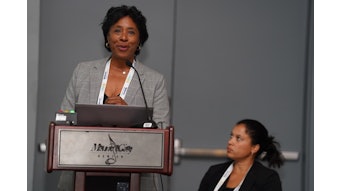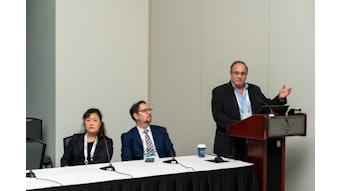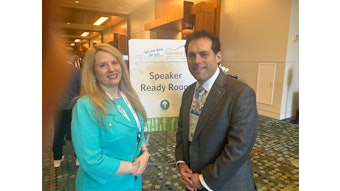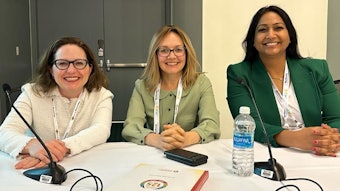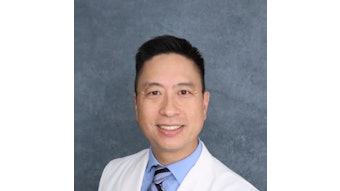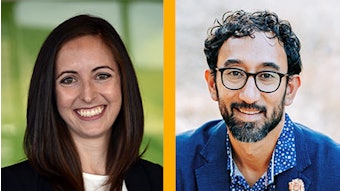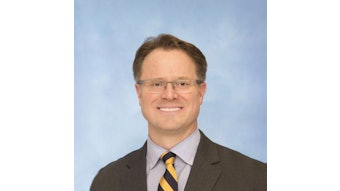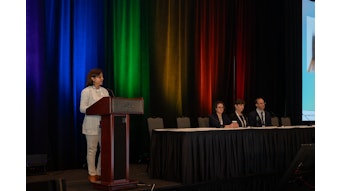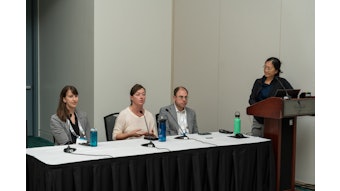Warning Ahead!
Infection remains top challenge for otolaryngologists.
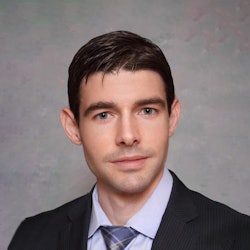
Infection. It’s a haunting word for both patients and the medical community alike. For otolaryngologists, infection is concerning at any stage, whether it’s postoperative or a part of chronic disease.
Wednesday’s session, “Preventing Otolaryngologic Infection: From Bench to Bedside,” will dissect the physical, psychosocial, and financial burden for patients as well as the widespread problem it continues to be in otolaryngology. According to session moderator Joseph Zenga, MD, assistant professor of otolaryngology at the Medical College of Wisconsin in Milwaukee, the problem is complex.
“It is an issue both of susceptibility and complexity. Many otolaryngologic surgeries are highly complex, including tissue transplantation and the requirement to heal within the microbial milieu of the upper aerodigestive tract,” Dr. Zenga said. “Additionally, the mouth, nose, and throat are a first-line of defense against invading pathogens, and for patients with underlying comorbidities or predisposing factors such as immunosuppression, these defenses can be breached. This can lead to serious and sometimes life-threating infections.”
Despite major advances in surgical approaches and disease management—in both the postsurgical setting and prevention and management of chronic disease—research, translational studies, and recent multi-institutional and clinical trials may hold the key to reducing the risk of infection.
Beyond the direct impact to patients, infections take an immense toll on otolaryngologists, Dr. Zenga said. That includes widespread, lower acuity issues, such as middle ear infections in children, to higher-level severe infections in adult cancer patients and immunosuppressed populations.
“Overall, we are talking hundreds of millions of dollars per year in added healthcare and lost opportunity cost for patients and caregivers,” he said.
During the session, panelists will provide both didactic and interactive components to their presentations. Attendees will gain a better understanding of the current incidence, risk factors, and strategies for preventing infection, the history and current state of antiseptic techniques in both open and endoscopic otolaryngologic surgery, and knowledge of evidence-based management into current practice to improve prevention and management of infection in otolaryngology.
Some of the strategies panelists will share to prevent otolaryngologic infections in both the postsurgical setting and in chronic disease include putting a microscope on presurgical antibiotics use (intravenously or topically).
“This is a major scientific issue we face and which this talk is meant to introduce,” Dr. Zenga said. “We do know that in almost no situation is long-term prophylactic antibiotic use beneficial.”
As for the future, Dr. Zenga said that translational studies hold promise.
“As a research community, we have spent decades on clinical trials without key translational components. When those trials are negative, little is learned, and even when they are positive, further innovation remains challenging. With the accessibility of bacterial and fungal genomics, in future studies we can not only learn what treatments work or don't work, but most importantly, why,” he said.
Finally, prevention is key. But it is difficult to study, Dr. Zenga added. For conditions with a high risk for infection, such as head and neck cancer surgery, small studies may help. However, for conditions with a lower incidence of infection, good scientific study design becomes unfeasible. For these cases, Dr. Zenga said there’s more benefit in investing in preclinical work—specifically in developing new in vitro or animal models.
“I think it's important to emphasize that cancer and infection go hand-in-hand. Cancer patients are more susceptible to otolaryngologic infections,” he said. “Additionally, there is emerging evidence that the presence of certain bacteria or fungal organisms may predispose patients to developing otolaryngologic cancers. For these reasons, the study and prevention of infection is an integral part of our fight against cancer.”
In addition to Dr. Zenga, speakers include Carissa M. Thomas, MD, PhD, Lauren T. Roland, MD, and Sidharth V. Puram, MD, PhD.
